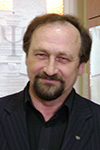
Assistant professor
Psychology and Pedagogy for Personality Development chair, St.Petersburg State University,
St.Petersburg, Russia
-
Research potential and cognitive features of students
-
This article examines the theoretical and methodological justifications for studying students’ research potential. It presents proof of the isomorphic nature of human research activity and research potential as well as of the fluid nature of its development: from research-like behavior to science-based research activity. It defines three functional components (motivational, cognitive, and behavioral) that form the structure of research potential. It further presents the results of empirically studying the cognitive features of master’s students possessing different levels of research potential. It provides data on the dynamics of research-potential components at different educational levels (bachelor’s and master’s programs). Special attention is given to a comparative analysis of evaluations by research tutors regarding their students’ research potential and of the indicators obtained using psychodiagnostic methods.
DOI: 10.11621/pir.2014.0411
Keywords: research activity, research behavior, research potential, cognitive activity, cognitive features of students
-









